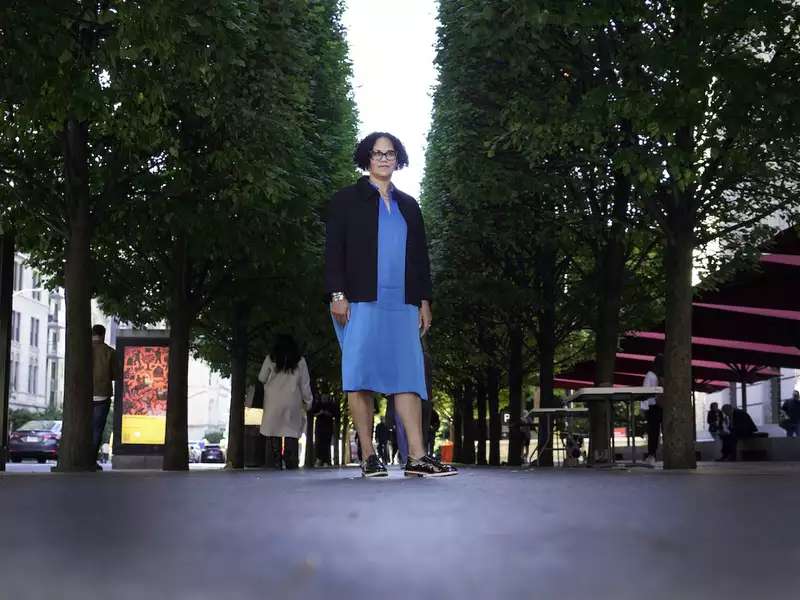
Every fall, fashion aficionados anticipate the Metropolitan Museum of Art’s announcement of the Costume Institute’s spring exhibition and the Met Gala theme. On October 9, the Met revealed that Barnard’s very own Monica L. Miller — professor and chair of the Africana Studies Department — is the guest curator for the upcoming show, “Superfine: Tailoring Black Style” (May 10 – October 26, 2025), which will kick off with the Met Gala on Monday, May 5.
In planning for the show, Miller, an interdisciplinary Black studies scholar, has pulled from her extensive research on literature, history, visual culture, performance studies, and fashion and dress. She wove each of these disciplines together in her 2009 award-winning book, Slaves to Fashion: Black Dandyism and the Styling of Black Diasporic Identity, which explored the Black dandy from the Enlightenment in England to the contemporary art worlds of London and New York. The Costume Institute will interpret the themes explored in Slaves to Fashion and bring Miller’s research on historical and modern style to life in their galleries.
“In the past few years, I’ve been writing and researching contemporary Black designers, Afrodiasporic art and artists, and I’m using all of that knowledge now,” said Miller. “As part of the design process for the exhibition, the curatorial team and I have been able to collaborate with artists whose work I follow and really admire. I’m learning everything from the conservation of historical garments to the many different kinds of mannequins and how they are dressed for an exhibition.”
This groundbreaking exhibition marks several cultural milestones: It’s the first time that the Costume Institute will produce a show specifically on Black dandies and the first time in 20 years, since 2003’s “Men in Skirts,” that it will focus on menswear. The topper: Miller is the first guest curator contracted during curator-in-charge Andrew Bolton’s eight-year tenure.
“[Miller] foregrounds the importance of sartorial style [and] the formation of Black identity in the African diaspora,” said Bolton. “I think a lot of Black designers today are exploring the different modalities that the Black dandy represents — things like freedom, dissonance, theatricality.”
“The Costume Institute’s spring 2025 exhibition will explore — with remarkable scale and breadth — the importance of sartorial style to the formation of Black identities in the Atlantic diaspora,” said Max Hollein, the Met’s Marina Kellen French Director and chief executive officer. “Through a diverse range of media, this groundbreaking presentation will also celebrate the power of style as a democratic tool for rejecting stereotypes and accessing new possibilities.”
According to Vogue, the exhibition will be structured around 12 characteristics of Black dandyism, “an organizational principle informed by a 1934 Zora Neale Hurston essay, ‘Characteristics of Negro Expression.’” Hurston was Barnard’s first Black student and graduated in 1928.
The exhibition will feature the work of many designers, including the late Virgil Abloh and Pharrell Williams for Louis Vuitton, alongside a diverse range of other media. Comprising works from the Met’s collection and loans from global institutions and design houses, the show will display garments ranging from a 19th-century purple silk velvet waistcoat with gold lace trimming to a modern wool jacquard set called the “Maya Angelou Passport” suit by Labrum London.
“Being able to create a multidimensional world featuring historical and contemporary garments and accessories, paintings, prints, and decorative objects from my book Slaves to Fashion has been an incredible honor and a huge, fantastic challenge,” said Miller. “My curatorial colleagues at the Costume Institute are truly amazing. I’m excited for people to visit the exhibition in May.”
Back at Barnard, Miller plans to bring students into the Black dandy discussion by teaching a summer 2025 class based on the exhibition, as well as a course later in the fall called the Cultural History of Black Fashion and Dress.
“I have been wanting to teach a class like this for years,” she said. “Now is clearly the time.”








